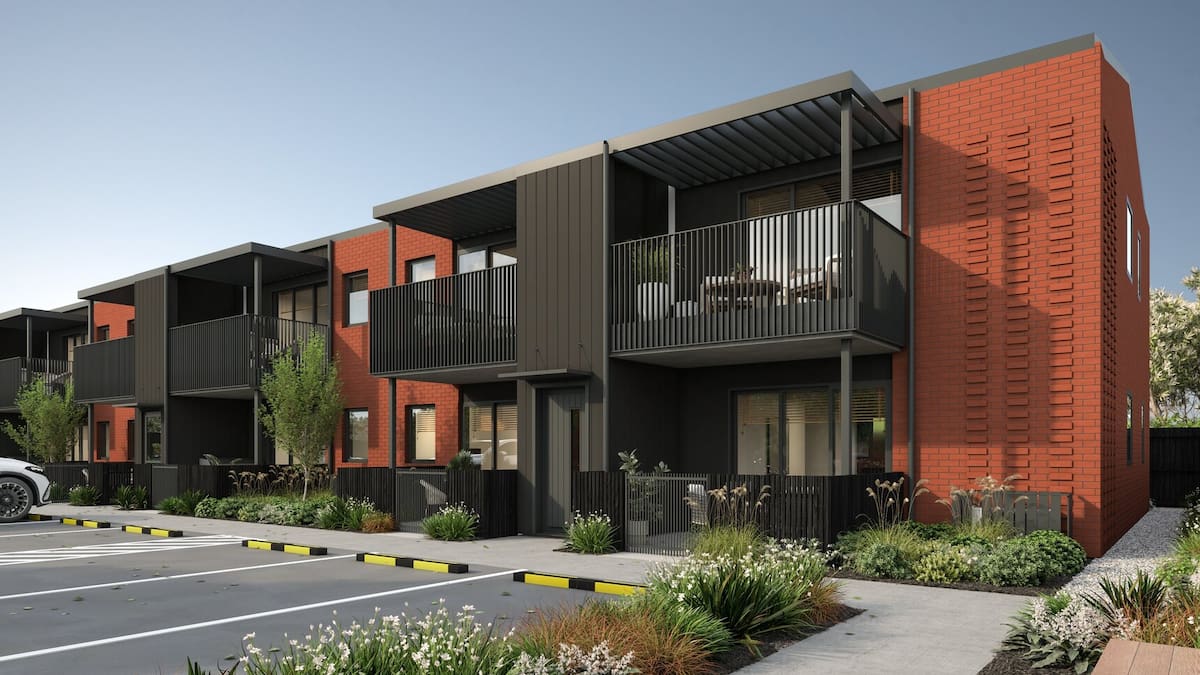It is also enabling the construction of new homes in Greerton and Bethlehem.
Under their joint venture, the equity fund and housing trust would co-own the Tauranga South apartments and rent them to tenants, all of whom would be on fixed incomes, aged 55 and older, and/or with chronic health conditions or disabilities.
They said half of those on the public housing register wanted one-bedroom homes, but only 1.2% of Tauranga’s private rental market offered them.
A site blessing was held last week. Construction by Mike Greer Commercial is expected to take 12 months.
Tauranga’s housing crisis and underused resources
Equity fund investment director Peter Watson said developers typically built three- and four-bedroom homes because they offered “greater financial returns”.
“We’ve got both a housing crisis and underutilised housing resources here in Tauranga.”
It was not efficient to have one person living in a large home, “but not everyone wants to live in an apartment or townhouse with no backyard”.
“There often aren’t genuine options to downsize without changing your lifestyle. So, we end up with urban sprawl because we keep building out.
“This project to build one-bedroom homes responds directly to the deepest unmet need in Tauranga.”
Watson said the apartments would cost $10m to build, with the cost split between the two organisations and bank debt.
The equity fund was keen to partner with community housing providers, iwi, Māori housing organisations and developers to deliver new, affordable housing across the region.
“Devonport Rd is a great example of how collaboration can make a huge difference.”
The site of a new housing project near the corner of Devonport Rd and 15th Ave in Tauranga had an official blessing last week, led by Tauranga City councillor Rod Taylor and Tamiti Tata of Ngāi Tamarāwaho.
Tauranga Community Housing Trust general manager Jacqui Ryan said rents would be capped at 25% of each tenant’s weekly income.
The Government would top up the difference through the income-related rent subsidy scheme.
“Everyone will have their own car park and will have security of tenure, regardless of what the private rental market is doing.”
The trust hoped eventually to buy out the fund’s share and own the apartments outright.
The trust managed more than 300 affordable homes in the Bay of Plenty.
The fund’s statement said the apartments would meet Lifemark Level 4 design standards and be suitable for elderly residents or those living with impaired mobility.
Wider doorways, hallways and flat-level entry into ground-floor homes and showers would make it easy to manoeuvre a wheelchair.
Extra studs would also be built into the walls to make it easy to install mobility handrails if needed.
The trust would provide additional wraparound support and wellbeing services to ensure tenants could continue living independently for as long as possible as they aged.
The site of a new housing project near the corner of Devonport Rd and 15th Ave being blessed.
Phil Green, acting chairman of Grace Rd and Neighbourhood Residents’ Association and co-director of H.G. Rose Architecture, said he appreciated the extent of the housing crisis.
Any means to alleviate the shortage was “desirable”, provided it met the requirements of those being housed and of the city’s urban design, met best practice for healthy homes “and, just as importantly, how it fits the local community environment”.
The project’s location made sense, as it was an area with adequate accessibility to amenities and was on or near transport corridors.
He said landscaping and communal interaction were essential in “mass housing” to engender interaction between occupants. It also helped the security of the occupants.
“This type of development will, whether communities like it or not, be the way to intensify city areas.
“Although this must be done in small pockets and not site after site after site adjacent to each other.”
Megan Wilson is a health and general news reporter for the Bay of Plenty Times and Rotorua Daily Post. She has been a journalist since 2021.

